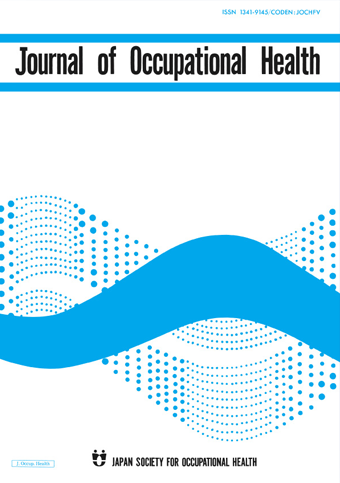Job-related stress and job dissatisfaction are risk factors for lengthy sickness-related absences
Long-term sickness-related absences from work, defined here as absences of at least 4 weeks, are a major public health concern in Japan, and such absences have adverse effects on an employee’s life expectancy and likelihood of returning to work. Understanding the predictors of such absences is therefore important so that workers and their employers can take early preventative measures.
We hypothesized that employees who experience high levels of job-related stress and are dissatisfied with their jobs would be at high risk of long-term sickness-related absences from work. To test our hypothesis, we conducted a study involving 14,687 employees of a Japanese financial services company. In July and August of 2015, these employees completed the Brief Job Stress Questionnaire, which served as a measure of both job stress and job satisfaction. We then used the company’s personnel records to detect cases of long-term sickness-related absence occurring between July 2015 and July 2016.
Compared with employees who experienced low or normal stress levels and were satisfied with their jobs, employees who experienced high stress levels and dissatisfaction with their jobs were over six times more likely to experience long-term sickness-related absences. Furthermore, employees who reported high stress levels but satisfaction with their jobs were still five times more likely to experience long-term sickness related absences when compared with the unstressed and satisfied employees.
Our results show that employees who experience both high job-related stress levels and feelings of job dissatisfaction are at particularly high risk of long-term sickness-related absences. However, the risk of such absences is still elevated for employees who experience high stress levels alone. We therefore recommend that highly stressed employees be encouraged to speak to physicians about their health and ways to prevent lengthy periods of sickness. Appropriate interventions will serve the interests of both the employees and their employers.
Link to the original journal article:
https://doi.org/10.1539/eohp.2020-0002-OA
Combined effect of high stress and job dissatisfaction on long-term sickness absence: A 1-year prospective study of Japanese employees
Akiomi Inoue, Yuko Kachi, Hisashi Eguchi, Akihito Shimazu, Norito Kawakami, and Akizumi Tsutsumi
Here are some ways you can make it easier for your plain-language summary to be discovered once it has been published:
- Upload the summary on your personal, lab/research group, or university website.
- Share the published content with peers and colleagues through your personal social media accounts (Facebook, Twitter, Blogs, and LinkedIn). Link this back to the journal’s social media promotions for your paper.
- Include the link to the published post in your email signature line.
News & Announcement
-
Mar 14, 2025EOH-P has been listed on PMC/PubMed!The articles published in EOH-P have been registered with PMC/PubMed, the U.S. Nation...
-
Jun 11, 2021Lay Summary page open!Lay Summary page provides you article summaries in order of study categories. You can...
-
Oct 1, 2019EOH-P is now released!The Environmental and Occupational Health Practice (EOH-P) has been released. Please ...
Journal Info
Average 46.14 days from submission to first decision
Average 120.95 days from submission to acceptance







